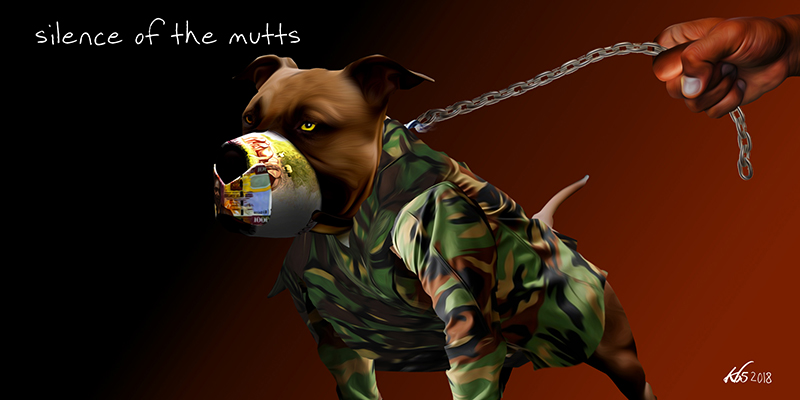At Sh3 trillion, anyway you cut it, Kenya’s recently unveiled national budget is a monster. It is bigger than the combined budgets of the other four East Africa Community countries. It is nearly double the then record-breaking budget unveiled in the first year of President Uhuru Kenyatta’s first term. To finance it, the government plans to hoover up Sh1.7 trillion in taxes and to borrow another Sh560 billion. However, that will still leave a Sh770 billion hole – roughly the size of Uganda’s 2017 budget.
A budget that size is bound to raise eyebrows and to whet appetites. It has also been presented at a most inopportune time as the country is caught up in the throes of a hysteria over corruption. Each day, it seems, brings new exposés of theft of billions of shillings of public money. The scale of the stealing is fueling a fevered search for scapegoats and there is a literal cry for blood in the street as legislators compete to propose ever more draconian punishments (including public executions) for anyone convicted of the vice.
None of this is new to President Uhuru Kenyatta’s government, which has developed a template for dealing with public anger over graft that essentially boils down to making symbolic offerings to appease it. Three years ago, when facing a similar public tantrum, Kenyatta announced that all implicated senior government officials would “step aside” till they cleared their names. No one really knows what “stepping aside” actually means – it is neither a resignation nor a suspension but it would appear the officials continue to draw a public salary.
The “stepping aside” is then followed by prosecutions. However, there is a catch. Most graft prosecutions involve netting small fry dealing in relatively tiny amounts. Last week, for example, we learnt that a majority of the 57 cases prepared by the Ethics and Anti-Corruption Commission (EACC) involved the theft of under Sh10,000 (roughly US$100). And while it is true that senior officials involved in a Sh10 billion procurement scam at the National Youth Service have been charged in court, it is instructive to note that similar prosecutions in 2015 against 26 individuals involved in a remarkably similar Sh800 million heist at the same institution resulted in 23 acquittals.
Resignations that are not really resignations and prosecutions that are not really prosecutions. The truth is that Kenya’s war on corruption is really just a show, our very own version of Wag the Dog. What is going on here is the political class is using the cover of the corruption hysteria it has incited to settle scores. In the crosshairs is Kenyatta’s deputy, William Ruto, and his allies.
As the “handshake” between Kenyatta and his bitter rival, Raila Odinga, remakes Kenya’s political landscape, the Deputy President has found himself isolated and outmaneuvered and vulnerable in the scrap over who will succeed Kenyatta in 2022. However, even as they fight among themselves, the political elite are careful not to upset the cart. A fake corruption war can help get rid of rivals but all would lose if it was allowed to escalate into a real effort to stamp out the vice.
The truth is that Kenya’s war on corruption is really just a show, our very own version of Wag the Dog. What is going on here is the political class is using the cover of the corruption hysteria it has incited to settle scores. In the crosshairs is Kenyatta’s deputy, William Ruto, and his allies.
And this is what the rhetoric around prosecutions and “stepping aside” is designed to achieve. The privileging of resignations and convictions as the pre-eminent measures of success in the war against corruption allows the Executive to perversely claim to be more committed to fighting graft when more of its members are implicated in graft. Further, it allows the administration to scapegoat the Judiciary for failed prosecutions despite the fact that many of the cases presented in court are shoddily investigated and half-heartedly prosecuted.
More importantly, it means that Kenyatta can escape censure for not doing his job. Because the constitution secures the independence of the Director of Public Prosecutions, President Kenyatta can rightly disavow responsibility for the lack of convictions. But the singular focus on the fate of the so-called “big fish” has kept the public distracted from a much-needed conversation about reforming our governance systems to eliminate incentives and opportunities for graft. There is little in the way of a discussion on policy fixes to plug the leaks, which is Kenyatta’s actual job.
Lie detectors and other gimmicks
Take the Sh11 billion Integrated Financial Management Information System (IFMIS), an automated system for public financial management that has twice been gamed in almost identical fashion at the National Youth Service. It is even more stunning considering that, after the first scam, the Auditor-General had recommended specific reforms to IFMIS that were never implemented. Rather, by December 2016, at the very instance public attention was focused on the grilling of senior officials by Parliament and on prosecutions in the courts, the second scam was already under way.
Instead of offering policy solutions to systemic problems, Kenyatta has taken to introducing gimmicks like lie detector tests as well as to issuing Executive Orders that simply restate what the law already requires and which underscore the fact that it is not enforced. He has demanded that procurement officers submit wealth declarations, which they are already obligated to do every two years by the Public Officer Ethics Act. Most recently, he ordered all government entities to publish full details of tender awards, again as already required by the Access to Informationn Act.
But even as Kenyan media breathlessly report these “developments”, there is no questioning of why these laws weren’t enforced previously. If such questions were raised, Kenyans might begin to understand that the way the laws are designed defeats rather than achieves the goal of fighting corruption. For example, the requirement for wealth declarations, for example, is rendered nugatory by the fact that the declarations are by law kept secret, that the function of collecting the declarations is distributed across a number of bodies, and that there is no legal obligation placed on these bodies to verify or to audit the declarations.
However, instead of proposing the necessary changes to the legal regime to actually give it teeth, President Kenyatta has ordered a lifestyle audit of all public servants, again without detailing who exactly would carry it out and how they would do it. Rather than fix the systemic problems, the President is trying to make political hay.
The focus on prosecutions also misses the larger picture. Anti-corruption crusader and publisher of The Elephant, John Githongo, wrote in the e-Review that “corruption in Kenya isn’t about greedy procurement officers, fiddling civil servants, crooked businessmen, shady bankers, thieving politicians… these players are born of a system of politics and governance that is itself inherently corrupt; one in which the thieves and those who facilitate them thrive.” Understanding this is the key to solving the corruption riddle.
However, instead of proposing the necessary changes to the legal regime to actually give it teeth, President Kenyatta has ordered a lifestyle audit of all public servants, again without detailing who exactly would carry it out and how they would do it. Rather than fix the systemic problems, the President is trying to make political hay.
African gifts and other myths
Many times it has been suggested that graft is a cultural problem that grew out of a supposed “African” tradition of gift-giving. Now, it is a good practice to be sceptical every time someone uses the word “African” to imply a uniformity on the continent – and here a healthy dose of scepticism would be justified. As Joe Khamisi’s history of corruption, Looters and Grabbers: 54 Years of Corruption and Plunder by the Elite 1963-2017, demonstrates, corruption was the gift of colonialism. It was, and still is embedded into the very fabric of the state the British created. The logic of that state was to legitimise the stealing by the few from the many, a logic that was evinced through the state’s design.
In fact, Kenya was corrupted even before it became Kenya. By 1907, thirteen years before the territory officially became a colony, bribery was already a feature of the nascent state. Khamisi cites Hugh Cholmondeley, popularly known as Lord Delamere, a leader of the British settlers, describing the relations between the public and the new rulers: “Time and time, I have had a native say they were stopped by an Indian policeman. When I asked them how they got away, they always said, ‘Oh, I gave him something.’”
Khamisi also describes how corruption seeped from the white colonial establishment down to its African enforcers, the appointed chiefs and policemen. A state built to steal was itself peopled by thieves. As David Anderson says in Histories of the Hanged: The Dirty War in Kenya and the End of Empire, “Europeans were as guilty of corruption and malpractice in colonial Nairobi as anyone else, and Africans at the bottom of the colonial racial hierarchy were most often its victims.” The Rose Commission, which was established in 1955 to look into “alleged corruption or other malpractices in relation to the Affairs of the Nairobi City Council” found that “the practice of City Council servants demanding or accepting, and of contractors offering, bribes or, if you prefer, money presents for services rendered or to be rendered, [was] by no means uncommon”.
Corruption was baked into the state and its templates were established from early on. At the top, the white elite ripped off the state through public projects, such as the railway and the construction of public housing, while at the bottom, poorly paid chiefs, members of African courts and police supplemented their incomes by extorting from the people. As Khamisi puts it, citing David Leonard’s African Successes: Four Public Managers of Kenyan Rural Development, “Through corruption and bribery, chiefs were transformed into willing agents of colonialism and were implicitly encouraged to use their positions to amass wealth and demonstrate to all and sundry that it paid to cooperate with Europeans.” In this manner, corruption became institutionalised as a way of doing government business. And when those chiefs and their kids inherited the state from the British, they really did not know any other way to be.
Fixing systemic flaws
Following independence in 1963, the civil service was massively expanded. But the Jomo Kenyatta (Uhuru’s dad) administration was not keen on paying for it. Following the colonial model, in 1971 the Ndegwa Commission recommended allowing civil servants to supplement their wages with private business. This had the effect of legalising corruption and legitimising conflict of interest situations. The looting ramped up and it has been escalating ever since.
Understanding the systemic roots of corruption would allow Kenyans to see that successful prosecutions, while a necessary part of a credible anti-corruption strategy, will not fix he problem. Deterring and punishing the corrupt is no substitute for fixing a system that not only permits, but also rewards graft. Convictions, even in the unlikely event that meaningful ones are secured, would be ineffective so long as a third of the government’s budget, some Sh600 billion according to the EACC, continues to be available to be stolen every year.
Following the colonial model, in 1971 the Ndegwa Commission recommended allowing civil servants to supplement their wages with private business. This had the effect of legalising corruption and legitimising conflict of interest situations. The looting ramped up and it has been escalating ever since.
The fact is that the rewards of corruption far outstrip Kenya’s capacity to punish it. The country’s energies would be better spent in holding political leaders accountable, not just for delivering convictions and harsher sentences, but for shutting down the gravy train. And that will require reforming how the Kenyan state works.
Here we can take some lessons from the colonial times. A report from the Kenya National Commission on Human Rights says that while the pre-independence civil service was corrupt, it “had its avarice kept to a minimum by the vigilance of the white settler community that it served”. If Kenya were serious about addressing corruption, ensuring that the public can effectively keep watch on the state should be at the top of the list. Everything from public contracts to wealth declarations should be exposed to the discerning gaze of the people.
And rather than token public participation in budget making, it is important to ensure that the public is involved in all aspects of decision making. As Nic Cheeseman wrote in 2015 on the subject: “The budget process can be understood to have three main stages when it comes to public participation: participatory budgeting, budget approval and communication, and budget review and audit. Ideally, participation should occur at all three stages, because public oversight is an important way to tackle both policy formation and corruption.”
Empowering the public to more actively participate in and oversee the affairs of the government will require a radical retrofitting of the colonial state. To date, Kenya’s second attempt at doing this seems to be going the way of the first. The 2010 constitution was in essence a reset to 1963 and the independence Constitution, which had many of the same features. However, that constitution failed largely because, as former Attorney General, Githu Muigai, wrote in 1982, it was imposed on an authoritarian, administrative structure. “Unhappily instead of the latter being amended to fit the former, the former was altered to fit the latter with the result that the constitution was effectively downgraded.”
That same colonial understructure is alive and well today, doing its best to undermine the operation of the new Constitution and its values of transparency and accountability. The biggest blow was to Chapter 6 of the Constitution that deals with leadership and integrity. This Chapter was effectively demolished when in the run-up to the 2013 election, a High Court ruled that Uhuru Kenyatta and his running mate William Ruto, two of the six Kenyans indicted by the International Criminal Court for crimes against humanity, could run for the office of the President and Deputy President of the Republic, respectively. It is, therefore, a cruel irony that Kenyatta is now demanding public officials indicted for corruption to do what he was himself unwilling to do then – step aside till he cleared his name.
Déjà vu
Sadly, it is not constitutionalism or respect for the law and for institutions that is driving Kenyatta’s anti-corruption rhetoric. It is not even concern over the looting of public funds; rather, this is a power grab. The President is seeking to substitute his will for the law. Officials step aside, or are prosecuted, not because the law requires it, but because the President ordered it. They are vetted, make wealth declarations and undergo lie detector tests for the same reason.
Under the veil of the anti-corruption drive, the President is actually conducting a campaign to delegitimise the constitution and concentrate power in himself. And if there is one thing our history teaches us, it is that this will not turn out well for the majority of Kenyans.
Sadly, it is not constitutionalism or respect for the law and for institutions that is driving Kenyatta’s anti-corruption rhetoric. It is not even concern over the looting of public funds; rather, this is a power grab.
Beyond the President’s actions, Kenya has seen the demand for punishment used to undermine other constitutional protections. A significant one is the right to bail, which is today being presented as an extension of impunity. For a long time, Kenyans have been conditioned to equate arrest with both prosecution and punishment. In fact, during the Jomo Kenyatta and Daniel arap Moi dictatorships, detention was itself used as punishment, not as a means to facilitate justice.
And, as a 2015 report by a judiciary task force on bail and bond guidelines found, “historically, police officers rarely grant cash bail to suspects of any offences other than traffic offences in spite of the provisions in the Constitution, C[riminal] P[rocedure] C[ode] and the Police Standing Orders which give discretionary powers to exercise that function.” Today, when people clamour for corruption suspects (and that’s all they are till convicted) to be denied their constitutional right to bail, many do not understand that they are eroding that same right for themselves and inviting the abuses of yore.
In the end, to effectively fight corruption, we must focus on systems and incentives, as well as uphold and strengthen, rather than undermine our institutions and laws.








